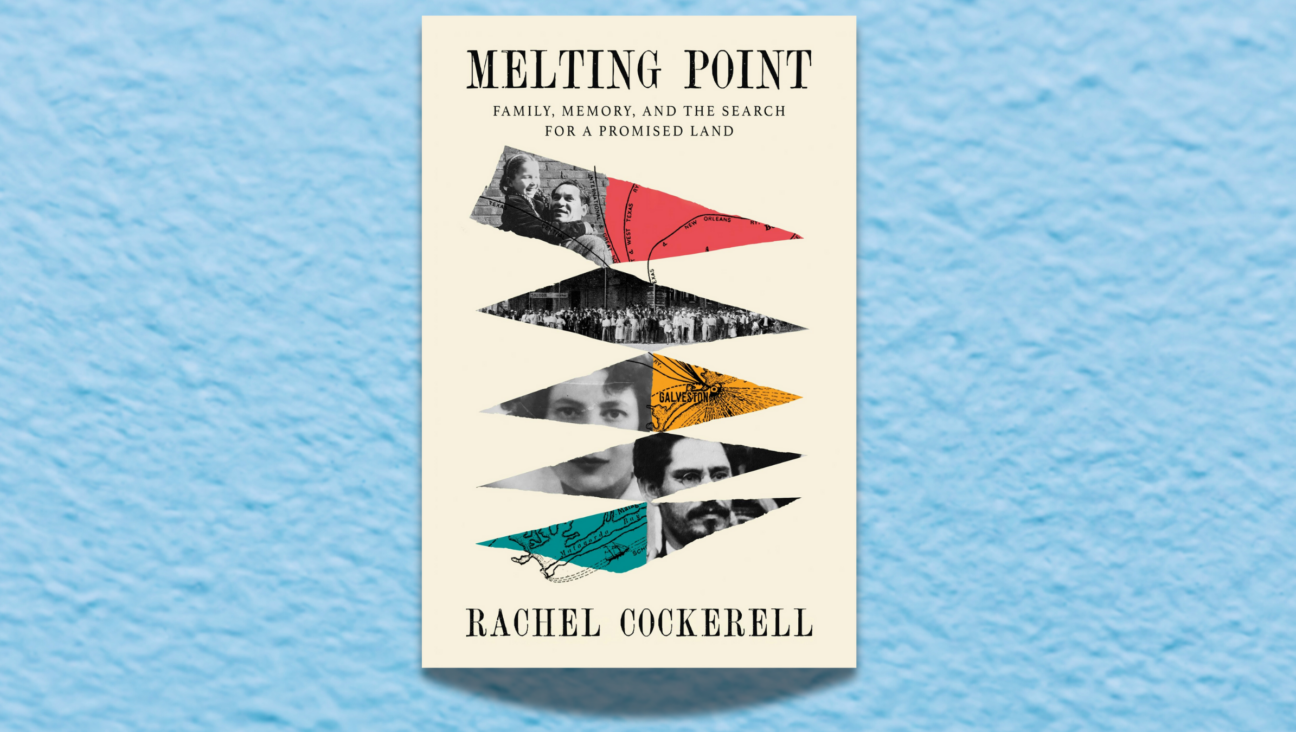Growing Up in Jazz Age Chicago

On Bittersweet Place
By Ronna Wineberg
Relegation Books, 270 pages, $13.95
As Ronna Wineberg’s novel “On Bittersweet Place” opens, the Czernitski family is escaping Russia. Revolution is in the air, and the family fears religious persecution. In the prologue, set in 1922, Lena, the young narrator of the book, spells out the fears she associates with living in the United States.
Those anxieties carry through over the course of the rest of the novel, which jumps forward a few years from the beginning. By now, Lena is a teenager in Chicago with a talent for art and a curiosity about the city around her. Familial tensions inform her quotidian interactions. The juxtaposition of Lena’s coming of age with the period setting unfolds in ways that are sometimes unexpected. And it’s that aspect of Wineberg’s novel, combined with the understated yet forceful voice of her protagonist, which makes this work memorable.
Initially, Lena’s family life seems stable. Early on, she describes leaving Russia with her mother, brother, and uncles William and Maurice at the age of 10; her father made his way to Chicago eight years before, a gap in which the contrasts between his life as a patriarch and a a less constrained lifestyle are revealed.
In this subplot, as well as others, Wineberg precisely evokes the way in which family secrets are kept from the young, only to explode into disaster months or years down the line. And for the Czernitskis, a generally likable family, there are plenty of hazards: a tragic event that befalls a young child, and the garrulous Maurice’s predatory tendencies, directed towards Lena in one early scene.
Maurice’s actions cast a grim shadow over the chapters that follow, as do Lena’s repeated encounters with a teacher who refuses to believe that her artistic talent is not the result of cheating. As horrific as these scenes are, Wineberg also examines their causes, finding the flawed and broken roots of hateful acts.
Lena’s burgeoning relationship with a young jazz aficionado reveals another side to her life, and to the city around her. It’s moments like these, and scenes where Wineberg establishes Lena’s own artistic promise, where the novel shines. True, they exist in contrast to the bleaker moments of family clashes and an ongoing struggle against bigotry, but they also suggest the ways that art can shift one’s circumstances, and offer a way out of troublesome situations.
The book’s title is a reference to the house in which Lena comes of age, but it also acts as a kind response to her oft-repeated ambition to leave Bittersweet Place for good. At the novel’s end, elements of the past — both Lena’s and her family’s as a whole — make unwelcome appearances. Again, Wineberg opts for emotional complexity rather than melodrama.
The hopeful note on which the book ends, even as fascism looms abroad and the Great Depression awaits closer to home, feels earned. “On Bittersweet Place” has a modest scope, but in the background there are questions of identity, the evolution of cities in the 20th century, and the minute effects of sweeping historical change. The contrast Wineberg achieves is impressive.
The Forward is free to read, but it isn’t free to produce

I hope you appreciated this article. Before you go, I’d like to ask you to please support the Forward.
Now more than ever, American Jews need independent news they can trust, with reporting driven by truth, not ideology. We serve you, not any ideological agenda.
At a time when other newsrooms are closing or cutting back, the Forward has removed its paywall and invested additional resources to report on the ground from Israel and around the U.S. on the impact of the war, rising antisemitism and polarized discourse.
This is a great time to support independent Jewish journalism you rely on. Make a gift today!
— Rachel Fishman Feddersen, Publisher and CEO
Support our mission to tell the Jewish story fully and fairly.
Most Popular
- 1

Culture Cardinals are Catholic, not Jewish — so why do they all wear yarmulkes?
- 2

News School Israel trip turns ‘terrifying’ for LA students attacked by Israeli teens
- 3

Fast Forward Ye debuts ‘Heil Hitler’ music video that includes a sample of a Hitler speech
- 4

Fast Forward Student suspended for ‘F— the Jews’ video defends himself on antisemitic podcast
In Case You Missed It
-

Yiddish קאָנצערט לכּבֿוד דעם ייִדישן שרײַבער און רעדאַקטאָר באָריס סאַנדלערConcert honoring Yiddish writer and editor Boris Sandler
דער בעל־שׂימחה האָט יאָרן לאַנג געדינט ווי דער רעדאַקטאָר פֿונעם ייִדישן פֿאָרווערטס.
-

Fast Forward Trump’s new pick for surgeon general blames the Nazis for pesticides on our food
-

Fast Forward Jewish feud over Trump escalates with open letter in The New York Times
-

Fast Forward First American pope, Leo XIV, studied under a leader in Jewish-Catholic relations
-
Shop the Forward Store
100% of profits support our journalism
Republish This Story
Please read before republishing
We’re happy to make this story available to republish for free, unless it originated with JTA, Haaretz or another publication (as indicated on the article) and as long as you follow our guidelines.
You must comply with the following:
- Credit the Forward
- Retain our pixel
- Preserve our canonical link in Google search
- Add a noindex tag in Google search
See our full guidelines for more information, and this guide for detail about canonical URLs.
To republish, copy the HTML by clicking on the yellow button to the right; it includes our tracking pixel, all paragraph styles and hyperlinks, the author byline and credit to the Forward. It does not include images; to avoid copyright violations, you must add them manually, following our guidelines. Please email us at [email protected], subject line “republish,” with any questions or to let us know what stories you’re picking up.















